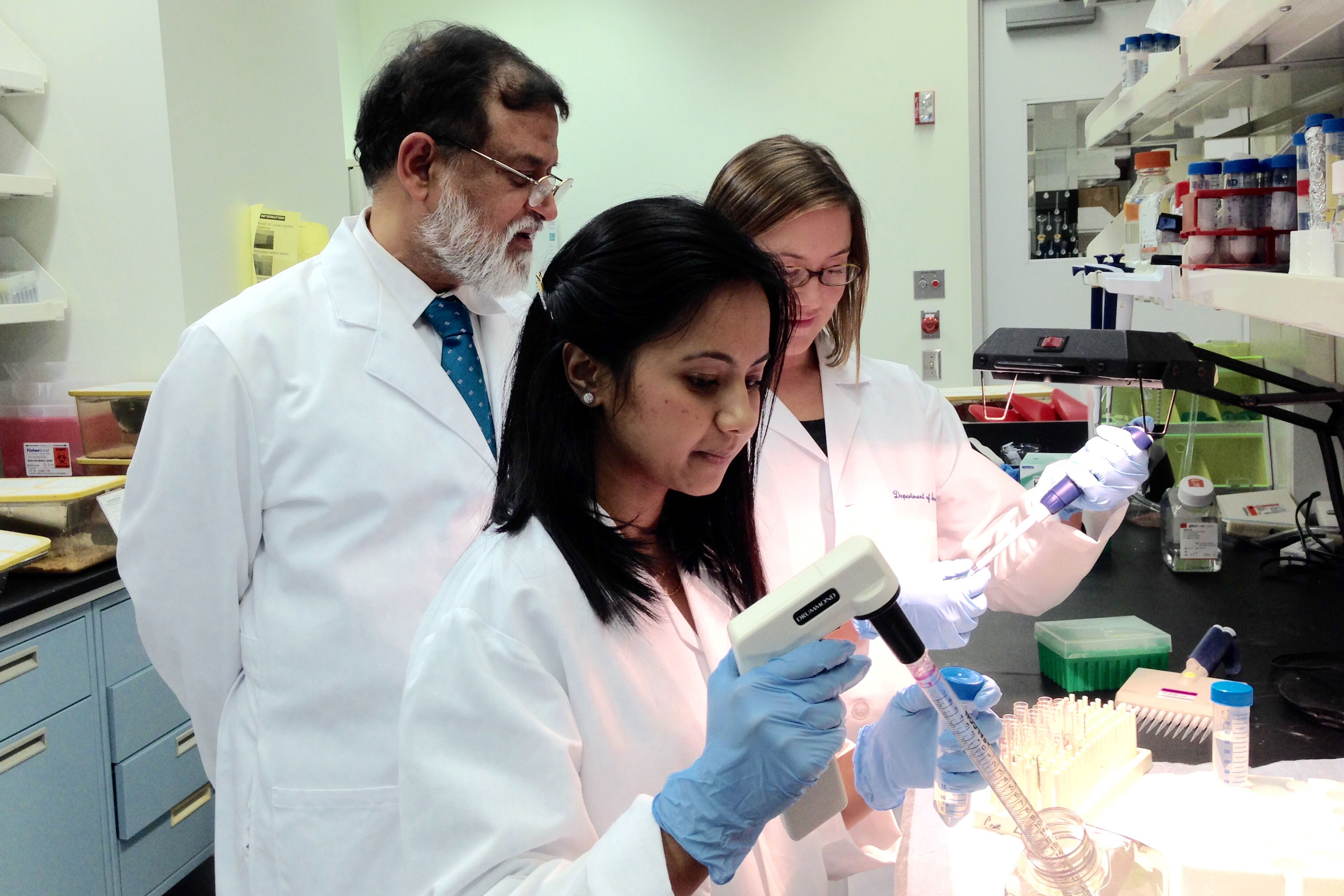Researchers at UConn Health will team up with the Parker Institute for Cancer Immunotherapy, the Cancer Research Institute, and 30 other organizations in a hunt for the telltale marks of cancerous cells, the group announced today. The search for neoantigens, as these unique cancer markers are called, has become a robust area of research, as scientists believe they may hold the key to developing a new generation of personalized, targeted cancer immunotherapies.
Neoantigens are abnormal proteins on the outside of cancerous cells. The immune system continually scans cells’ identities as it looks for foreign invaders. Cancer cells are tricky for the immune system to identify, because they look somewhat like friendly natives but with something just a bit off. That something off is the neoantigen. Because these tumor markers are both specific to each individual and unlikely to be present on normal healthy cells, neoantigens represent a potential target for the immune system, and make possible a new class of highly personalized vaccines with the potential for significant efficacy and reduced side effects.
“We have a long-standing and extensive research and clinical program in neoantigen discovery and translation,” says Dr. Pramod Srivastava, director of the Carole and Ray Neag Comprehensive Cancer Center at UConn Health. “Indeed, we were the first group in the world to suggest the idea of neoantigens and to translate that into clinical medicine.”
Srivastava and UConn Health colleagues will contribute insights from their current neoantigen projects, which include development of personalized ovarian cancer vaccines, to advance the mission of the alliance.
Every patient’s cancer is different. In order to predict which neoantigens will be present on a patient’s tumor, researchers have developed software programs to analyze tumor DNA, and output the unique set of markers that the immune system is most likely to recognize. Members of the alliance will share their data on neoantigen prediction, allowing them to improve faster than if they only had access to their own institution’s results.
The goal of the initiative is to help participating groups test and continually improve the mathematical algorithms they use to analyze tumor DNA and RNA sequences in order to predict the neoantigens that are likely to be present on each patient’s cancer. In support of this, Parker Institute and the Cancer Research Institute (CRI) have partnered with renowned open science nonprofit Sage Bionetworks, to manage the bioinformatics and data analysis.
Initially, the project is expected to focus on cancers such as advanced melanoma, colorectal cancer, and non-small cell lung cancer, that tend to have larger numbers of mutations and thus more neoantigens. Over time, the initiative will seek to broaden the relevance of neoantigen vaccines to a wide range of cancers.
Participants come from universities, biotech, the pharmaceutical industry, and scientific nonprofits. The researchers represent a wide swath of scientific fields, including immunology, data science, genomics, molecular biology, and physics and engineering.
Participating researchers said they looked forward to working collaboratively through the alliance to solve one of immunotherapy’s most complex problems.
“Bringing together the world’s best neoantigen research organizations to accelerate the discovery of personalized cancer immunotherapies is exactly the type of bold research collaboration that I envisioned when launching the Parker Institute,” said Sean Parker, Silicon Valley entrepreneur and founder of the Parker Institute for Cancer Immunotherapy. “This alliance will not only leverage the immense talents of each of the researchers, but will also harness the power of bioinformatics, which I believe will be critical to driving breakthroughs.”



